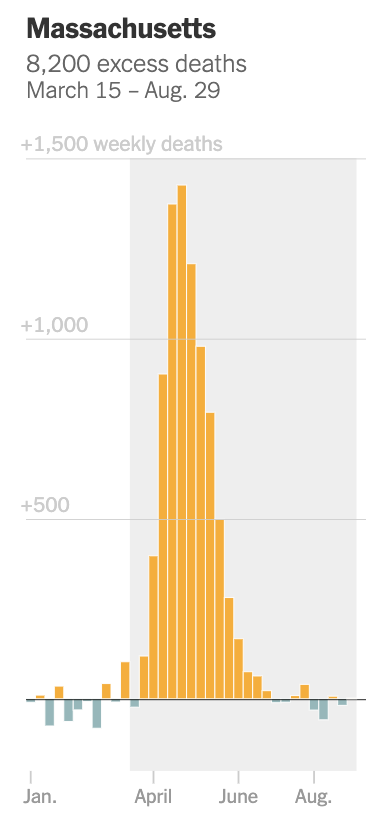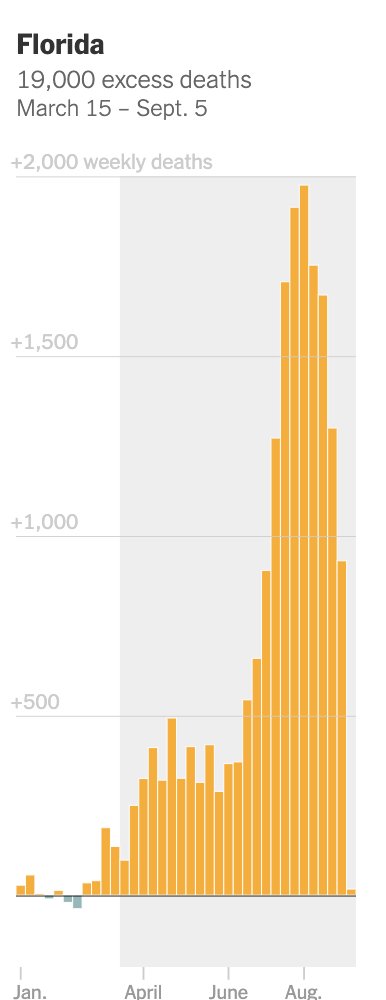The real toll of Covid-19 is even higher than 200,000. Between mid-March and late August, 259,000 more Americans have died than would in a normal year. nytimes.com/interactive/20… @DeniseDSLu @jshkatz 

The statistics in this article are based on CDC estimates for *all* deaths, so they don't depend on the availability of covid tests or the accuracy of death certificate reporting.
Not all of these deaths are necessarily from the virus itself. But they appear to be related to the pandemic and the ways it is changing our lives and health.
The regional patterns in deaths from all causes are tracking the movement of virus outbreaks across the country.
The regional patterns in deaths from all causes are tracking the movement of virus outbreaks across the country.
Compare Massachusetts, which had an early outbreak and a strict lockdown, to Florida, which reopened in May and had a late outbreak. These trends suggest the virus is playing a major role in deaths, not lockdowns. nytimes.com/interactive/20… 



Of course, other causes of death are likely changing. There may be fewer deaths from traffic accidents and flu, as people stay home more. There may be more deaths due to drug overdoses, due to social isolation and disruptions in the drug supply. nytimes.com/interactive/20…
But you cannot look at these overall death statistics and not see that this pandemic has been catastrophic, killing many, many people who would have otherwise lived. nytimes.com/interactive/20…
Finally, these numbers only run through August 29, since it takes time to count death certificates. But, overall, excess deaths are running around 40% higher than reported covid deaths. If that pattern holds, the overall toll could be closer to 280,000 deaths so far.
• • •
Missing some Tweet in this thread? You can try to
force a refresh








